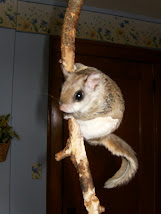An important repeated image throughout Antigone is the image of a dead body being feasted on by animals. Antigone says about Polyneices' body, "But his body must lie in the fields, a sweet treasure for the carrion birds to find as they search for food" (Sophocles 816). This image is very important to the story because the thought of her brother's body being unburied is Antigone's motive throughout the entire play. The image of Polyneices' body rotting and being eaten is very disrespectful and disgusting to Antigone. She demands proper burial rites for her brother so he can rest in peace.
Creon's fatal flaw in the play is his stubbornness. He refuses over and over again to listen to anyone else. This leads to his niece, son and wife to all commit suicide. "No doubt. Speak; Whatever you say, you will not change my will" (837). Creon says this to Teiresias because his predictions are not what Creon wants to hear. Although it is obvious Teiresias' predictions will come true, Creon's stubborn personality doesn't allow him to realize this and his whole life comes crashing down because of it.
During the play Creon has a moment of anagnorsis which is when he realizes the truth. Creon is able to understand how his actions have caused him so much distress. "I alone am guilty. I know it, and I say it" (841). He is able to recognize how his stubbornness and his rules have lead to the death of his entire family. Creon's perpeteia and his reversal of circumstances comes when he realizes what fate he has left his niece to, "Oh it is hard to give in! but it is worse to risk everything for stubborn pride" (837). Creon finally understands that his family is more important than anything else and his laws and stubbornness need to be put aside. Unfortunately he realizes this too late. The catharsis of the play occurs when Creon's realization to what he has done overcomes him. "Whatever my hands have touched has come to nothing. Fate has brought all my pride to a thought of dust" (842). Creon has come to recognize the fact that everything he has done has ended horribly. His family is dead and it is all his fault. This makes the audience feel a strong surge of pity for Creon.
In the play, women are characterized as both strong, brave and influential along with unsure and scared. Antigone represents the strong-willed women. "Creon is not strong enough to stand in my way" (816). Antigone is so determined that even her uncle, the king, will not stop her from doing what she thinks is right. Her bravery overpowers anything and everyone. Her sister, Ismene represents women in the complete opposite way of Antigone. "But think of the danger! Think of what Creon will do!" (816). This shows women as unsure and scared to act. Ismene says herself, "I have no strength to break laws that were made for public good" (817). Although Ismene may want to help her sister, she is afraid to disobey the laws to do so. The characterization of women in both ways shows how both men and women thought of a woman in society in that time.
Works Cited
Spohocles. "Antigone." Literature Timeless Voices, Timeless Themes: World Literature. Trans. Dudley Fitts and Robert Fitzgerald. Upper Saddle River: Prentice Hall, 2001. 814-826
Subscribe to:
Post Comments (Atom)








No comments:
Post a Comment